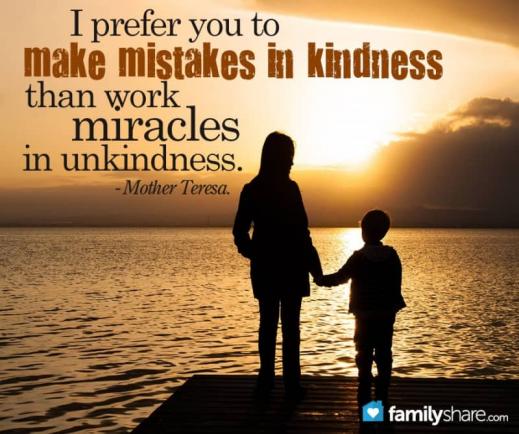
Being a good parent takes effort, time and commitment. I've been a mom for nearly 13 years, and I've made my fair share of mistakes. Rather than beat myself up over every flaw, I try to move forward. Learning from my mistakes makes me a better parent. Here are five fixes for my biggest parenting mistakes. Maybe reading these will keep you from making the same errors.
1. Say yes more than no
Kids do need to hear "no," but not all the time. I am a little OCD about cleanliness in my house. I spent too many years saying "no" to messes. Not all the time, of course, but enough that I felt as if I was stifling my kids' creativity. Kids enjoy setting up play stores or schools and making forts. Now I say yes to fun ideas and teach my kids to clean up when they're done playing. Other things worth saying "yes" to are invitations to play, just one more story and "can I have a hug?"
2. Try not to yell
Then try harder. Every parent feels frustrated, but not every parent reacts the same way. I've done my fair share of yelling, but now I'm trying new tactics. Taking deep breaths, seeing things as they really are and making a real effort to keep your voice down will help you stop yelling. Parents who keep their cool and resist yelling when dealing with difficult situations are parents who show children respect and love.
3. Give kids a break
Sometimes parents forget children are still learning. They expect them to act perfectly most of the time, and rarely get angry or upset. I was guilty of this. Then I realized that, just like adults, kids have bad days, too. Learning about the emotional development of children helped me know that kids go through emotional changes and sometimes have a hard time regulating their feelings.
Another way I've learned to give my kids a break is by helping them learn rather than expecting them to be perfect. It may take a child several tries to learn how to do a task, and then he or she might forget how to do it. I've had to re-teach my children how to clean a bathroom five times. Giving my kids a break and showing them patience helps them know they can trust me.
4. Let it go
Like adults, kids don't like to be nagged. They also don't like to be reminded of past mistakes. Letting things go and trying to forget mistakes helps kids move forward and learn. For example, if your child accidentally breaks something special, try not to bring it up for years to come. Everyone makes mistakes and has accidents. No one wants to be constantly reminded of her weaknesses and failures. If your family has a culture of bringing up past mistakes, change it. Let it go.
5. Teach by example and action
I'm sure I'm not the only parent who's been caught yelling "Stop yelling!" It's ironic, and a little sad, when parents exhibit the very characteristics they don't allow in their children. Instead of just lecturing my kids about being nice to each other, I make an extra effort to be nice. If I'm feeling a lack of gratitude in our home, I try to thank family members for the things they do to help me. I've learned I can't sit back and tell my family how I want them to act, I have to set the example. I'm confident they can grow up and be kind and happy adults. I hope I'm teaching them with my actions.
Parents joke about kids needing therapy to overcome their childhoods. In most families, therapy is not needed. I think I'm a better parent for acknowledging my mistakes, asking forgiveness from my children and moving forward. If you can relate to any of my mothering mistakes, try to change. Your kids will love you even more for your efforts.

